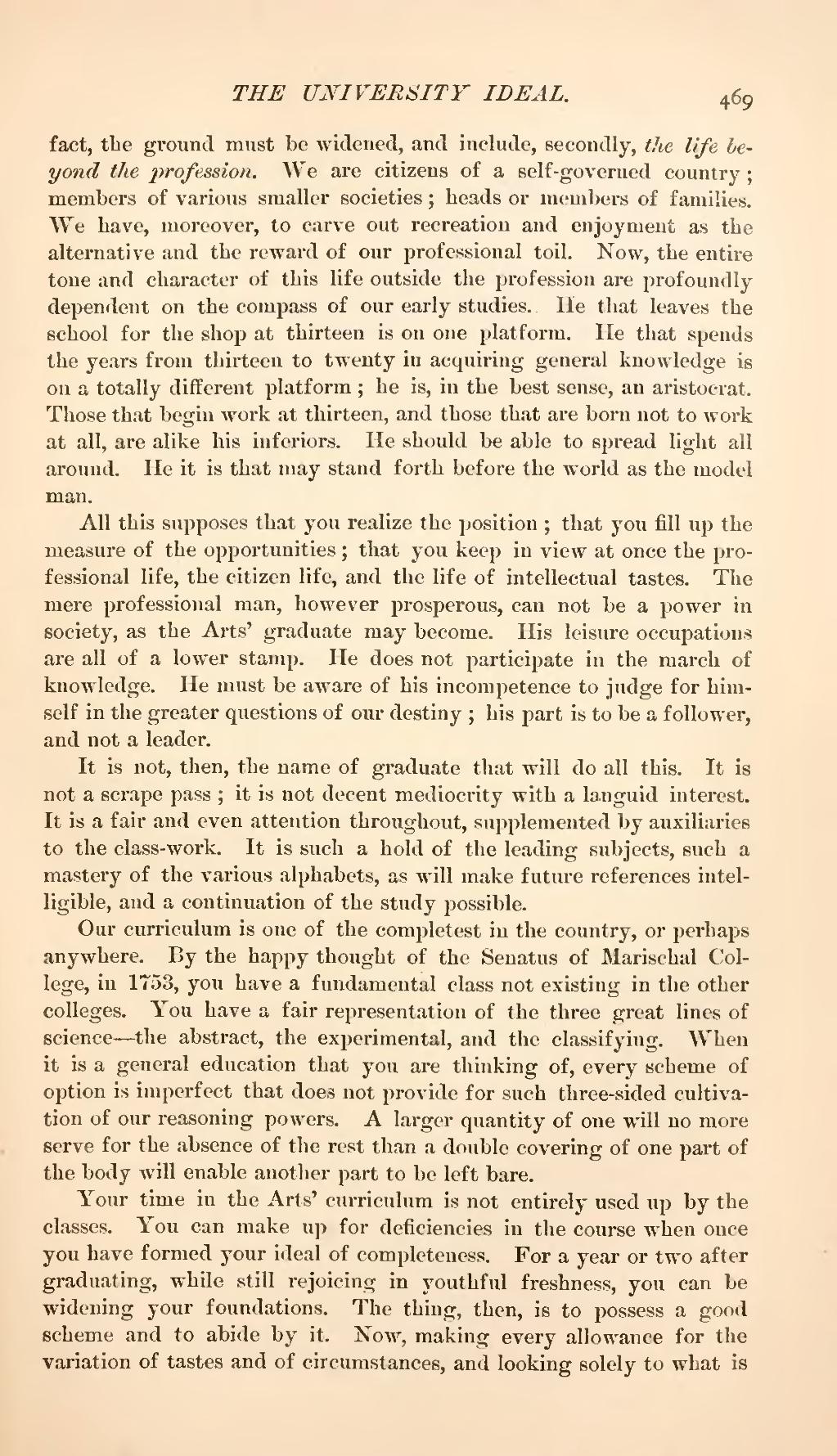fact, the ground must be widened, and include, secondly, the life beyond the profession. We are citizens of a self-governed country; members of various smaller societies; heads or members of families. We have, moreover, to carve out recreation and enjoyment as the alternative and the reward of our professional toil. Now, the entire tone and character of this life outside the profession are profoundly dependent on the compass of our early studies. He that leaves the school for the shop at thirteen is on one platform. He that spends the years from thirteen to twenty in acquiring general knowledge is on a totally different platform; he is, in the best sense, an aristocrat. Those that begin work at thirteen, and those that are born not to work at all, are alike his inferiors. He should be able to spread light all around. He it is that may stand forth before the world as the model man.
All this supposes that you realize the position; that you fill up the measure of the opportunities; that you keep in view at once the professional life, the citizen life, and the life of intellectual tastes. The mere professional man, however prosperous, can not be a power in society, as the Arts' graduate may become. His leisure occupations are all of a lower stamp. He does not participate in the march of knowledge. He must be aware of his incompetence to judge for himself in the greater questions of our destiny; his part is to be a follower, and not a leader.
It is not, then, the name of graduate that will do all this. It is not a scrape pass; it is not decent mediocrity with a languid interest. It is a fair and even attention throughout, supplemented by auxiliaries to the class-work. It is such a hold of the leading subjects, such a mastery of the various alphabets, as will make future references intelligible, and a continuation of the study possible.
Our curriculum is one of the completest in the country, or perhaps anywhere. By the happy thought of the Senatus of Marischal College, in 1753, you have a fundamental class not existing in the other colleges. You have a fair representation of the three great lines of science—the abstract, the experimental, and the classifying. When it is a general education that you are thinking of, every scheme of option is imperfect that does not provide for such three-sided cultivation of our reasoning powers. A larger quantity of one will no more serve for the absence of the rest than a double covering of one part of the body will enable another part to be left bare.
Your time in the Arts' curriculum is not entirely used up by the classes. You can make up for deficiencies in the course when once you have formed your ideal of completeness. For a year or two after graduating, while still rejoicing in youthful freshness, you can be widening your foundations. The thing, then, is to possess a good scheme and to abide by it. Now, making every allowance for the variation of tastes and of circumstances, and looking solely to what is

